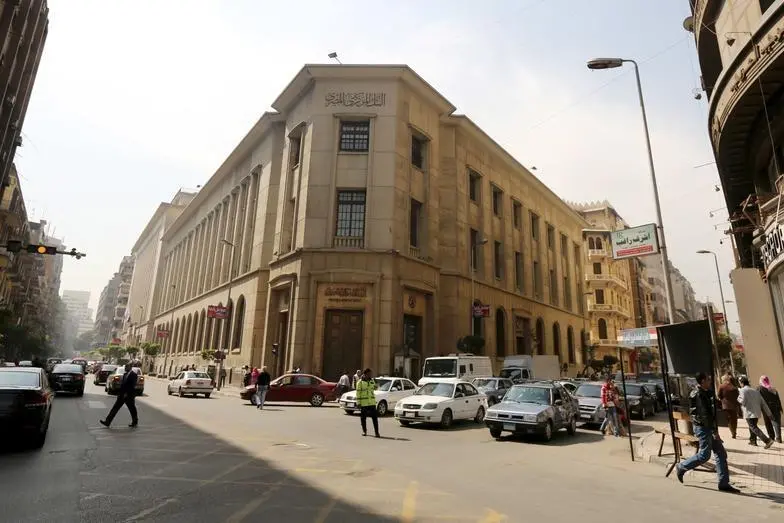PHOTO
CAIRO - Egypt's central bank is likely to leave key interest rates unchanged at its meeting on Thursday, a Reuters poll showed on Tuesday, although a decline in inflation in recent months prompted some expectations of a cut.
Ten out of 14 economists polled by Reuters said the bank's monetary policy committee was unlikely to change its overnight rates, with deposits at 16.75 percent and lending at 17.75 percent.
Two analysts forecast that the Central Bank of Egypt (CBE) would cut rates by 50 basis points. Two others said it would cut them by 100 basis points.
"We anticipate that rates will be left unchanged in February, followed by a 100 bps reduction as early as March," said Maya Senussi, senior economist for the Middle East at Oxford Economics.
"The retreat in inflation puts rate cuts back on the table, assuming global oil prices remain favourable for Egypt's inflation environment. However, the CBE will be cautious to shift its stance amid higher EGP volatility and still strong underlying price pressures."
Headline inflation rose in January to 12.7 percent from 12.0 percent in December, after falling from 15.7 percent in November. The bank's target range is 10 to 16 percent.
Core inflation, which strips out volatile items such as food, also rose in January, to 8.6 percent from 8.3 percent a month earlier.
"I believe several factors now support a rate cut," said Hany Farahat, senior economist at investment bank CI Capital. "Notably, the drop in inflation to comfortable levels, especially core inflation, which is way below CBE targets."
He also said foreign exchange dynamics, which support the Egyptian pound, "all point towards a lower premium on the EGP, as shown by the drop in treasury yields."
Some economists foresaw rate cuts by August, following an expected fuel subsidy cut in the summer tied to an agreement with the International Monetary Fund.
Egypt raised fuel and electricity prices last summer, reforms that linked to a $12 billion IMF loan programme agreed in late 2016. Those reforms included a currency float, cuts to energy subsidies and the introduction of a value-added tax.
To curtail inflation, the central bank's monetary policy committee raised interest rates by 700 basis points over eight months following the IMF deal. It last cut them in February and March last year by a combined 200 basis points.
(Reporting by Yousef Saba, editing by Larry King) ((Yousef.Saba@thomsonreuters.com; +201222184730))





















